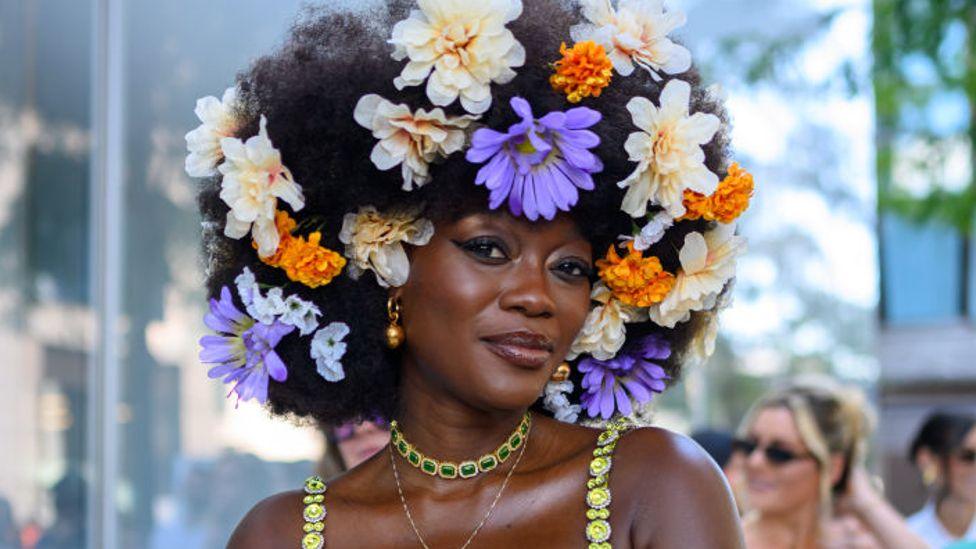Who pays for the clothing of world leaders and their spouses?
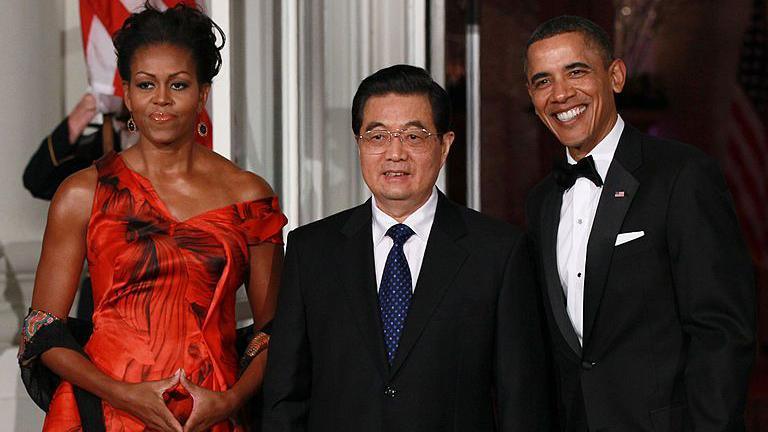
Michelle Obama (l) wore a striking scarlet Alexander McQueen dress while meeting former Chinese President Hu Jintao
- Published
Sir Keir Starmer and his wife Victoria accepted donations of clothing so they could "look their best" to represent the UK, David Lammy has said.
Asked about the donations, the foreign secretary suggested other countries had generous taxpayer-funded budgets for leaders' clothing.
Lammy was responding to reports Sir Keir may have broken parliamentary rules in failing to declare clothes bought for his wife by Labour donor Lord Waheed Alli.
He told Sunday with Laura Kuenssberg: “US presidents and first ladies have a huge budget, paid for by the taxpayer, so that they look their best on behalf of the US people."
In fact, the US first lady does not have access to a specific clothing budget - and many have shared frustration at the cost of staying fashionable in the White House.
An allowance for the president - but not the first lady
In some countries, taxpayers contribute to living expenses for their leaders - and this can include clothing.
US presidents have an expenses budget of some $50,000 (£38,000), which can be used to purchase clothing and other items, on top of an annual salary of $400,000.
But the US president’s spouse - historically, always a first lady - does not receive an annual salary or fixed expenses budget, though they have paid staff and an office.
That's despite the US first lady’s fashion choices attracting immense scrutiny and attention.
Notable examples have included Melania Trump’s Zara jacket emblazoned with “I REALLY DON’T CARE, DO U?”, on a visit to a migrant detention centre, and the striking scarlet Alexander McQueen dress worn by Michelle Obama while meeting former Chinese President Hu Jintao.
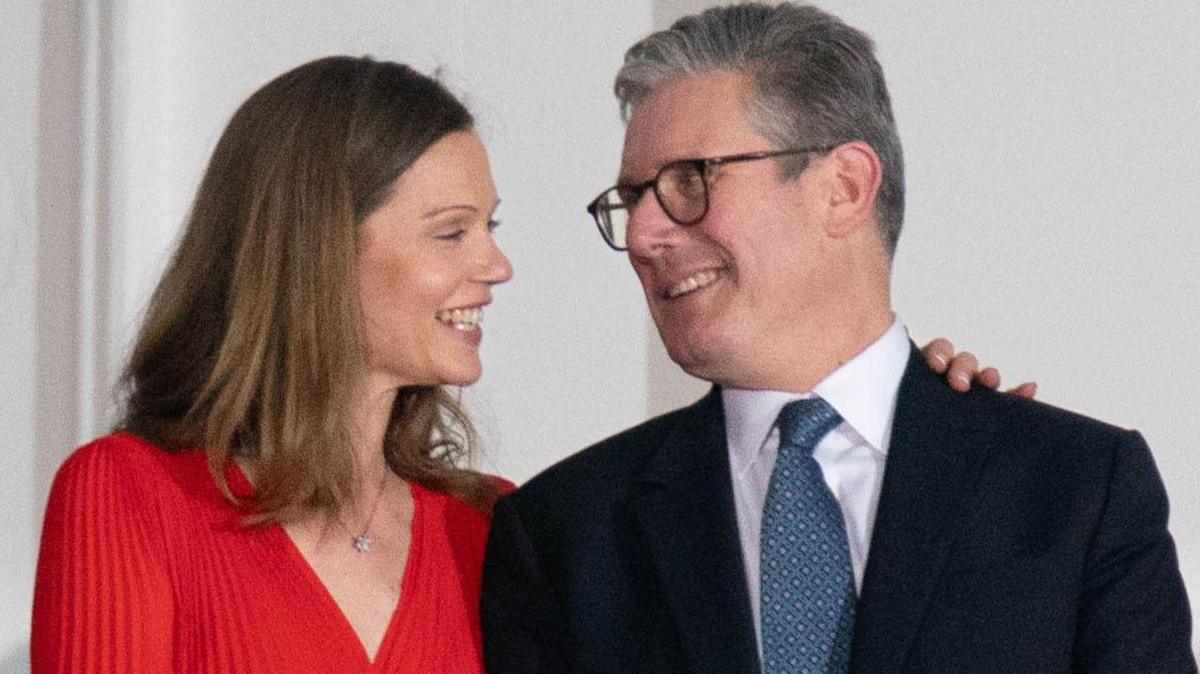
Lady Victoria joined her husband Sir Keir for her first international event in Washington in July
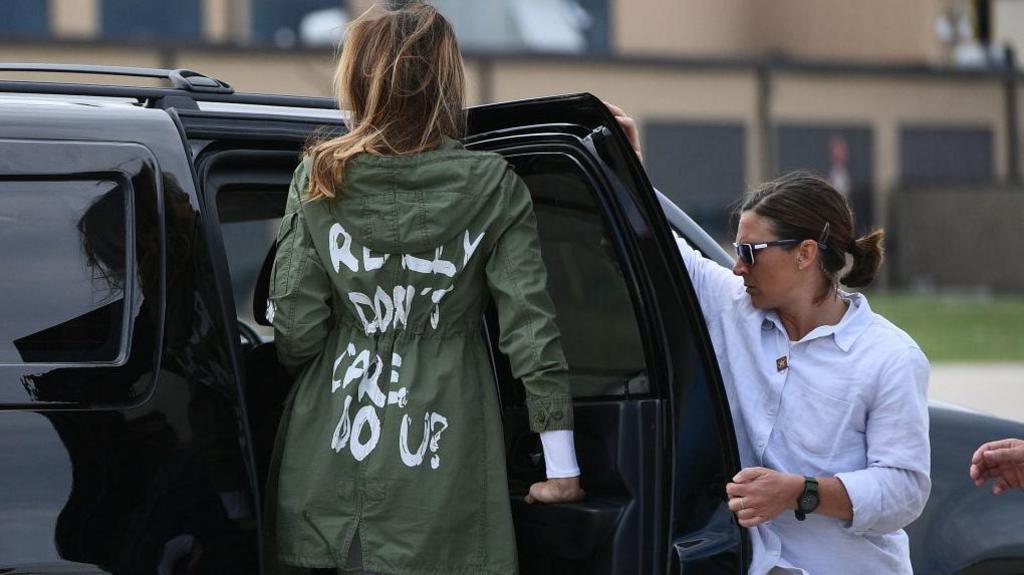
Melania Trump later said her jacket's slogan was a message for her critics
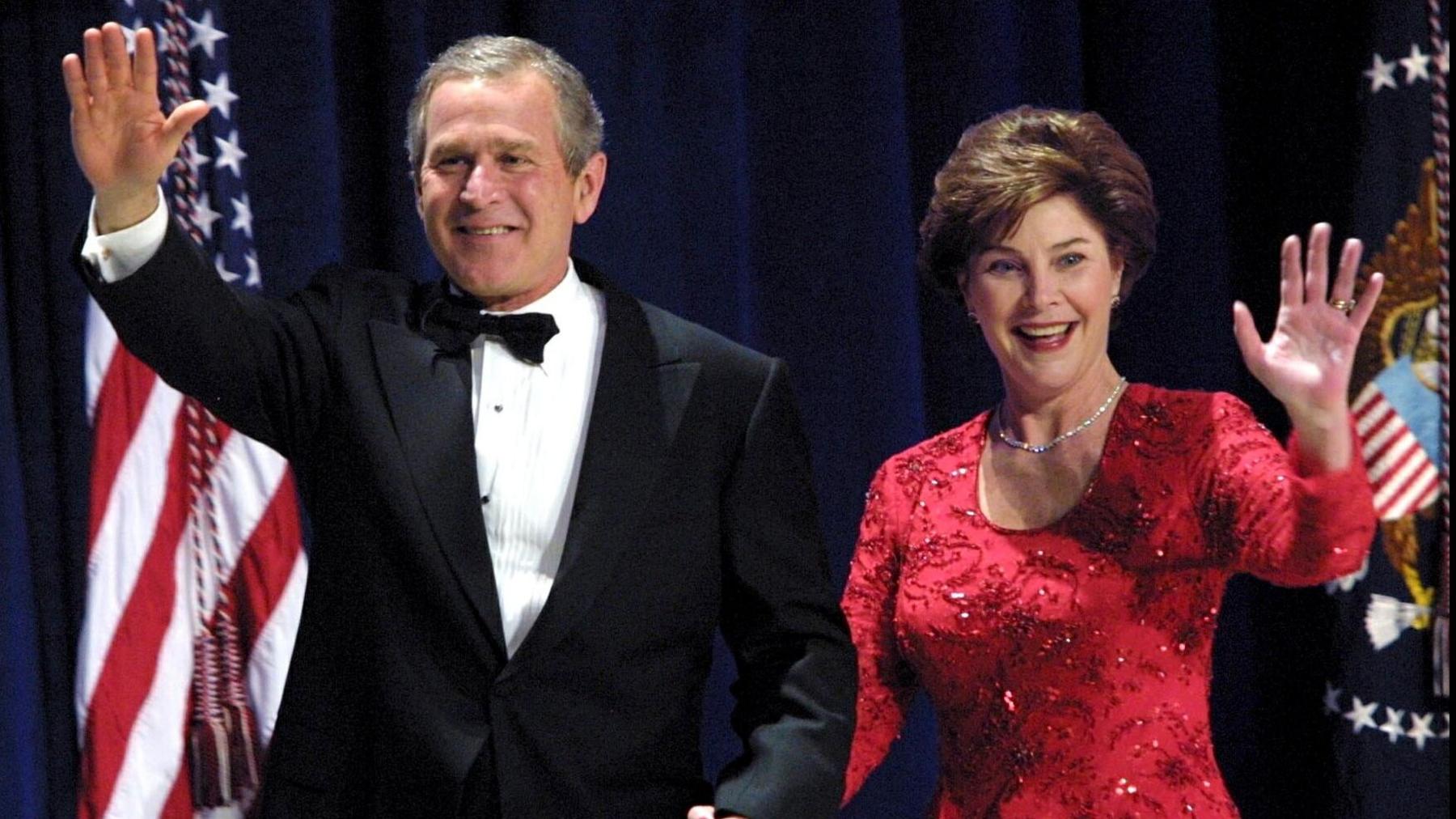
First lady Laura Bush faced scrutiny for her fashion choices
Some first ladies have said that, in general, they were expected to pay for their clothes themselves.
Laura Bush, the wife of George W Bush, wrote in her 2010 memoir that she was “amazed by the sheer number of designer clothes that I was expected to buy… to meet the fashion expectations for a first lady”.
“After our first year in the White House, our accountant said to George, ‘It costs a lot to be president,’ and he was referring mainly to my clothes,” Mrs Bush wrote.
Michelle Obama’s press secretary, Joanna Rosholm, told CNBC in 2014: “Mrs Obama pays for her clothing.”
US first ladies can also accept clothes as gifts, often on behalf of the government.
Some designers welcome the publicity their clothes being worn by the first lady offers them.
With the price tags of designer dresses easily running into the tens of thousands, donations are the only way comparatively less wealthy occupants of the White House can afford to wear star designers.
“For official events of public or historic significance, such as a state visit, the first lady’s clothes may be given as a gift by a designer and accepted on behalf of the U.S. government,” Mrs Rosholm said.
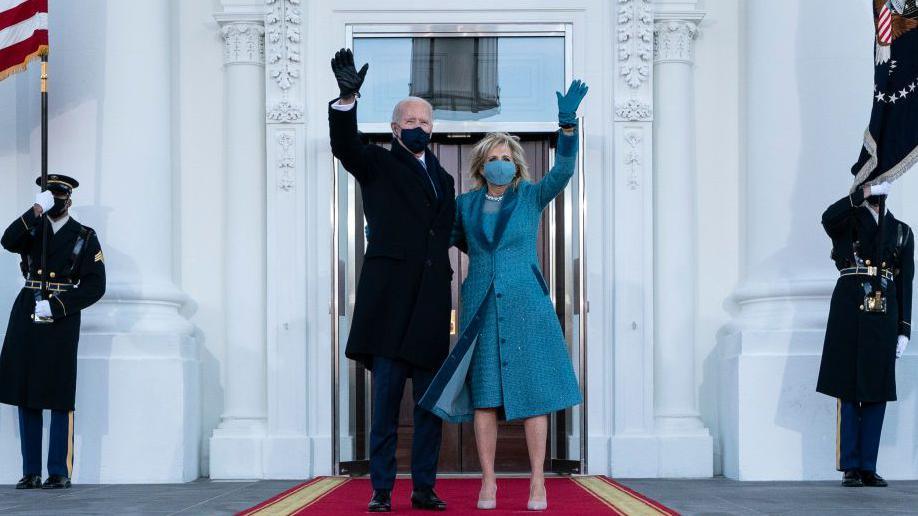
The dress first lady Jill Biden wore at her husband's inauguration was donated to the Smithsonian Museum
The Smithsonian Museum lists the dress current first lady Jill Biden wore at her husband’s 2021 inauguration as a donation of designer Alexandria O'Neil “in honour of first lady Jill Biden” – an indication the designer lent her the dress.
By contrast, it appears that her predecessor Melania Trump, whose husband's wealth made him the richest president in history, donated her inaugural dress, designed by Hervé Pierre, herself. That may be because she paid for it.
In the UK, Sarah Brown, wife of former prime minister Gordon Brown, has spoken of the difficulties around accepting gifts - including clothing - while in Downing Street.
"As I quickly discover," she wrote in her 2011 book Behind the Black Door, "there is no shortage of designers and retailers who will offer you free clothes.
"However, there are many rules that govern what MPs (and spouses) can do with free gifts - not to mention the moral aspect of using your position to grab freebies.
She explained the solution: "No 10 advisers and I figure out a way that works for everyone. Any clothes that I want to keep, I can buy.
"Any freely offered clothes or jewellery, I can effectively ‘rent’ for about 10 per cent of the retail value, then return."
What about other countries?
Spouses of world leaders elsewhere generally appear to rely on donations for their style choices.
France's Brigitte Macron does not have a state-funded budget for clothes and is believed to be lent outfits by Parisian high fashion houses such as Louis Vuitton.
According to the 2019 book Madame La Présidente, her office keeps a record of which clothes have been donated to her and which are her own.
But her husband, President Emmanuel Macron, has been criticised for his own profligate spending. This year, a newspaper revealed that his office reserved a business class seat on a flight from Paris to Brazil solely to transport two of his suits, at a cost of nearly €4,000 (£3,380).
In Germany, ministers were criticised for spending €450,000 on hairdressers, makeup artists and photographers in the first six months of 2023, though there does not appear to be a specific fund for clothing.
Asked about Lammy's remarks, a Foreign Office spokesman declined to comment further.
Downing Street said of Sir Keir's declaration of clothing donations: "We sought advice from the authorities on coming to office.
"We believed we had been compliant, however, following further interrogation this month, we have declared further items."
- Published15 September 2024
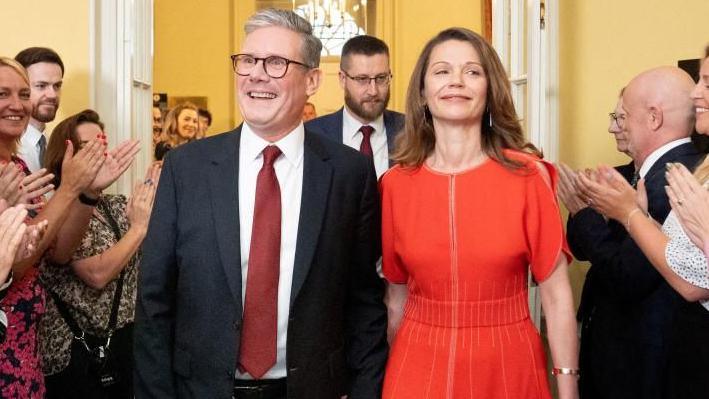
- Published12 July 2024
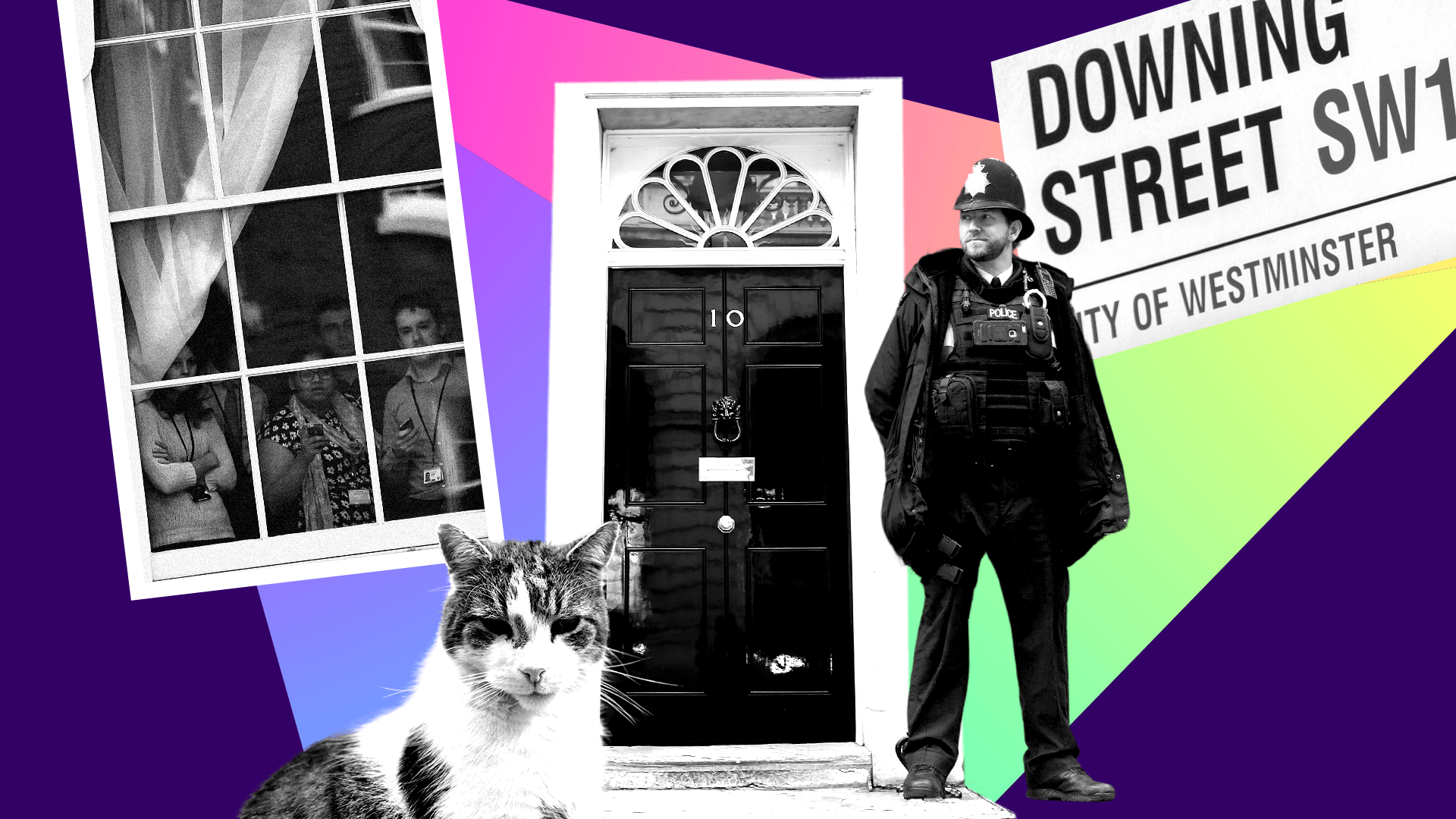
- Published12 September 2024
